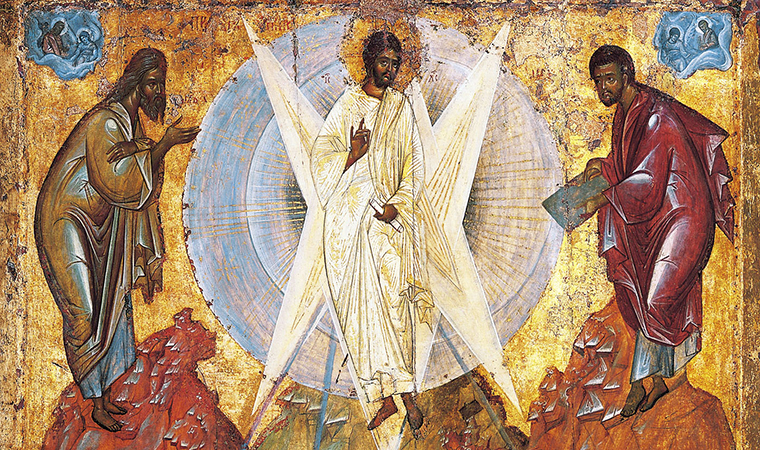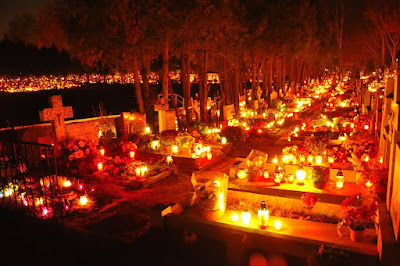Third Sunday of Lent Year C
As much as you believe that the government is out to get your money by using any pretext whatsoever, they do sincerely go out of their way to issue ample warnings to discourage you from engaging in any activity that could get you taxed or penalised. Take for example, the repeated large signs displayed on highways and major thoroughfares reminding you of speed limits and of the impeding speed cameras just up ahead. If the first sign doesn’t get your attention, there’s always two more to follow. I’ve been advised (poorly advised I must say), that you can still get to “speed” until you see the third sign. This is certainly not a piece of advice that any one of you should follow. But should you decide to press down on your accelerator despite three consecutive warnings, be ready for a hefty fine. You deserve it. You’ve been warned. You can’t use ignorance as an excuse to wrangle your way out of this.
Disasters and tragedies are meant to do that. Serve as signposts, warnings, that we must take evasive action before it is too late. Unfortunately, a good tragedy is wasted on so many. Some attempt to benefit from the tragedy suffered by others. Many look at these as fodder for news, rumour-mongering and endless speculations. Still others look at tragedies as evidence of a pernicious and malicious God, or a God who is indifferent to our concerns and suffering or even as proof of the non-existence of God. But what about us Christians. Our Lord provides us with the answer in today’s gospel.
When tragedy strikes, don’t look back and try to discern the reason. Sometimes a postmortem may be necessary to determine the truth and avoid further recurrences but often people are trapped in the past, in a cycle of regret and resentment and not prepared to move forward. Neither should we look around us for someone to blame. Again, assigning responsibility may be needed to hold persons accountable but this may be a futile exercise that only leads to a frustrating dead-end, leaving us with more questions than answers. Our Lord challenges us, however, to look inwards, to make an honest introspection of ourselves, to make an assessment of where we are going and where are we heading if we continue to stay on this course.
Three possible lessons could be derived from this self-examination.
Tragedies and unexpected events serve as “memento mori” - they remind us of our mortality and the brevity of life. Tempus Fugit, Memento Mori – time flies, remember death!
Rather than shaking the foundation of our faith in God, such events should lead us to trust more in God rather than in ourselves and our devices. Only God alone can stave off an impending disaster or provide us with the strength and grace to push through and come out stronger.
Finally, such tragedies serve as a call to repent. In today’s gospel, our Lord refutes all speculations that the people who suffered tragedy deserved it by redirecting the attention of His audience to themselves: “unless you repent you will all perish as they did.” If we were to examine the concept of repentance in their original biblical languages, we would realise that repentance is more than just turning away from our sin but actually a turning to God, a radical reorientation of our lives to God. This is what happened to Moses in the first reading.
The story of Moses juxtaposes two possible paths which we can take when faced with tragedy or a crisis. The first path seems to be the easier and more logical choice because it arises from our basic instinct for survival. Moses fled Egypt after having killed someone and sought refuge in a life of anonymity far from civilisation. But God did not abandon him to his devices. He comes in search of the one who will not shepherd animals but His people and lead them out of slavery to freedom.
Thus, God intervenes in the life of Moses, disrupts his relative peace and creates a crisis in order to shake Moses out of his preferred retirement. For a man who sought to escape a crisis, God now introduces a crisis to redirect Moses in the path which God has chosen for him. We see the obvious tension between Moses’ preferred path and that of God’s in the series of questions and answers we hear in the first reading. Moses attempts to give excuses to evade the call but God would have none of it. Moses cannot plead ignorance. God answers every single objection he raises.
Just in case, that we too may attempt at deflecting whatever barbs the Lord may throw at us by arguing that the experience of Moses has nothing to do with our current modern experiences, St Paul in the second reading brings us up to speed by reminding us that what happened to the Israelites in the Old Testament should also be an important warning given to present day Christians. Less, modern day Christians should imagine themselves insulated from the judgment which God had issued upon their ancestors, St Paul tells us, “All this happened to them as a warning, and it was written down to be a lesson for us who are living at the end of the age. The man who thinks he is safe must be careful that he does not fall.”
When God gives us warnings it’s meant to help us take remedial action and evade our own personal disaster. They are not meant to be threats to scare us into docile submission, but opportunities accorded to us to avert danger because He loves us and doesn’t want us to come into harm’s way, especially when the harm may result in our eternal separation from Him.
That is why our Lord concludes His teachings with the parable of the fig tree in the vineyard. It would seem strange to find a fig tree in the middle of a vineyard instead of a fig tree orchard. What more the vinedresser’s main task is to care for the vines rather than a fig tree, and yet he is tasked to go beyond his job description and entrusted to nurture this tree, a work which seems pointless since the fig tree is barren. But at the behest of the vinedresser who pleads on behalf of the fig tree, the tree is given a respite of another year before it is cut down. Notice that we are not told what happens after that one year. Did it finally bear fruit? We are not sure. This parable is deliberately open-ended – the listener supplies the conclusion in his own life. We have been shown mercy by God, a mercy which we do not deserve. We have been warned but have we heeded the warning or persisted in stubborn old ways?
So, my dear friends, do not be sighing in relief that disaster came to others and you were spared. Neither should you be busy speculating as to who is to be blamed for the tragedy and mishap. Watch out for the “signs,” for God issues many warnings ahead of the danger. Only one thing matters: That disaster – that accident – that unexpected event – it could be you next time – why take a chance . . . no more waiting . . . settle with God today.












